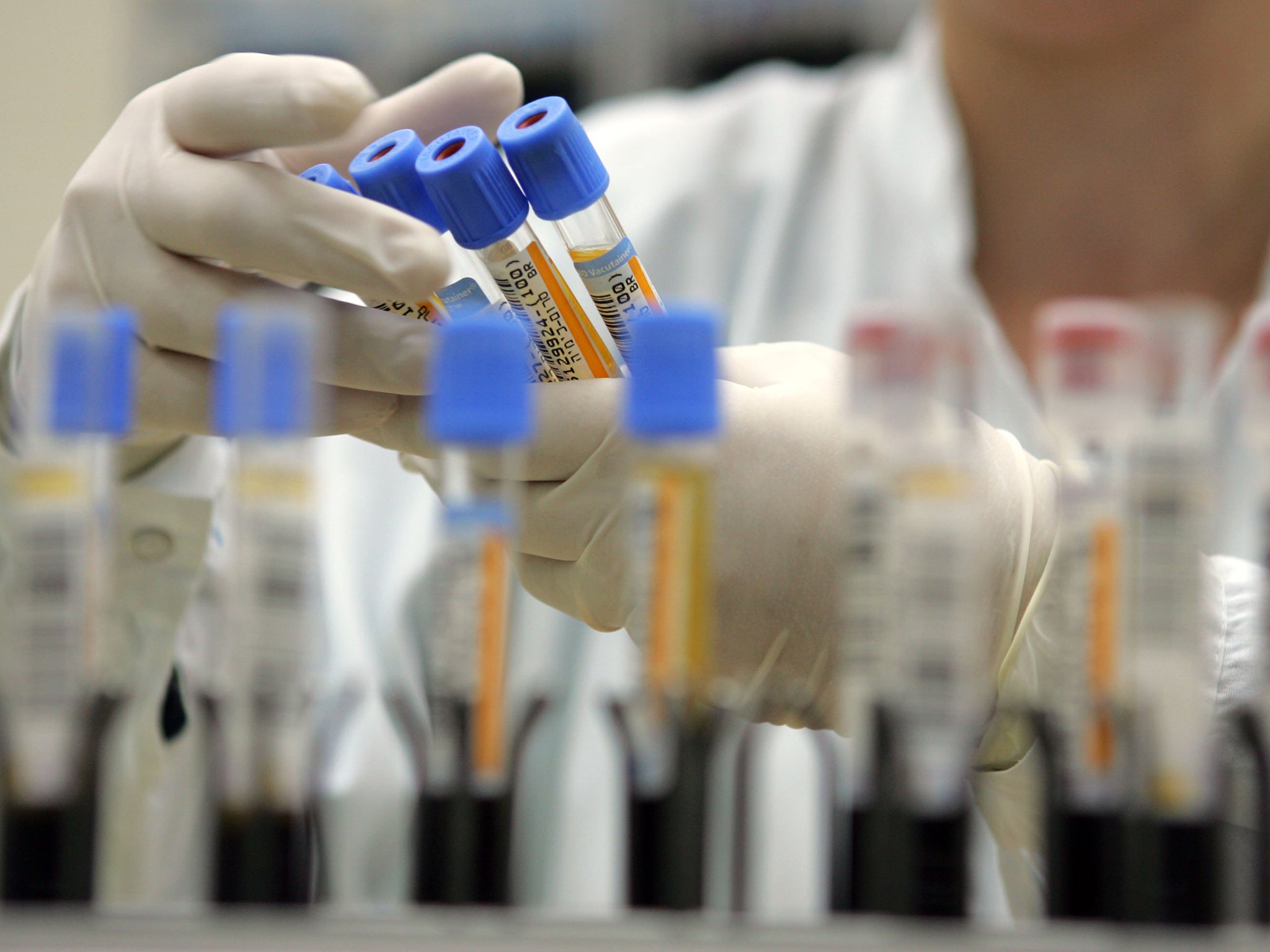Prostate cancer screening step closer: Scientists identify gene defects in at risk men
Scientists isolated 13 gene defects held by men at risk of developing potentially deadly tumors.

Scientist have isolated a set of 13 gene defects that can be used to identify men who are most at risk of developing life-threatening prostate cancer.
The discovery raises for the first time the chance of cancer screening for men to spot those predisposed to aggressive and potentially deadly tumours.
For the study, blood samples were taken from 191 British men with prostate cancer who also had at least three relatives afflicted with the disease.
Fourteen were found to have varying “loss of function” mutations in their DNA that completely stopped a gene working. Carrying any one of these flaws greatly boosted the chances of developing invasive, spreading prostate cancer.
Researchers believe men could be tested for the mutations in the same way that women are currently screened for breast cancer genes, a move which would herald a revolution in prostate cancer diagnosis and treatment.
Professor Ros Eeles, from London's Institute of Cancer Research (ICR) and The Royal Marsden NHS Foundation Trust, said: “Our study shows the potential benefit of putting prostate cancer on a par with cancers such as breast cancer when it comes to genetic testing.
“Although ours was a small, first-stage study, we proved that testing for known cancer mutations can pick out men who are destined to have a more aggressive form of prostate cancer.
“We already have the technical capabilities to assess men for multiple mutations at once, so all that remains is for us to do further work to prove that picking up dangerous mutations early can save lives.
“If so then in the future, genetic testing may be needed as part of the prostate cancer care pathway.”
Routine screening for two gene defects is currently in place for women with a strong family history of breast cancer. For prostate cancer however, which is seemingly linked to a multiplicity of different genetic mutations, the picture is more complicated.
Currently there is no way of screening men who might be at risk from ferocious prostate cancers that could cut short their lives. Many diagnosed prostate cancers, are slow-growing and can safely be left untreated while their progress is monitored.
An effective screening test would make it possible to step in early and treat men with developing dangerous cancers before they progress too far.
Despite big advances in treatment in the last 10 - 20 years, around 11,000 of the 40,000 men diagnosed with prostate cancer each year in the UK die from the disease.
Additional reporting from PA
Subscribe to Independent Premium to bookmark this article
Want to bookmark your favourite articles and stories to read or reference later? Start your Independent Premium subscription today.

Join our commenting forum
Join thought-provoking conversations, follow other Independent readers and see their replies